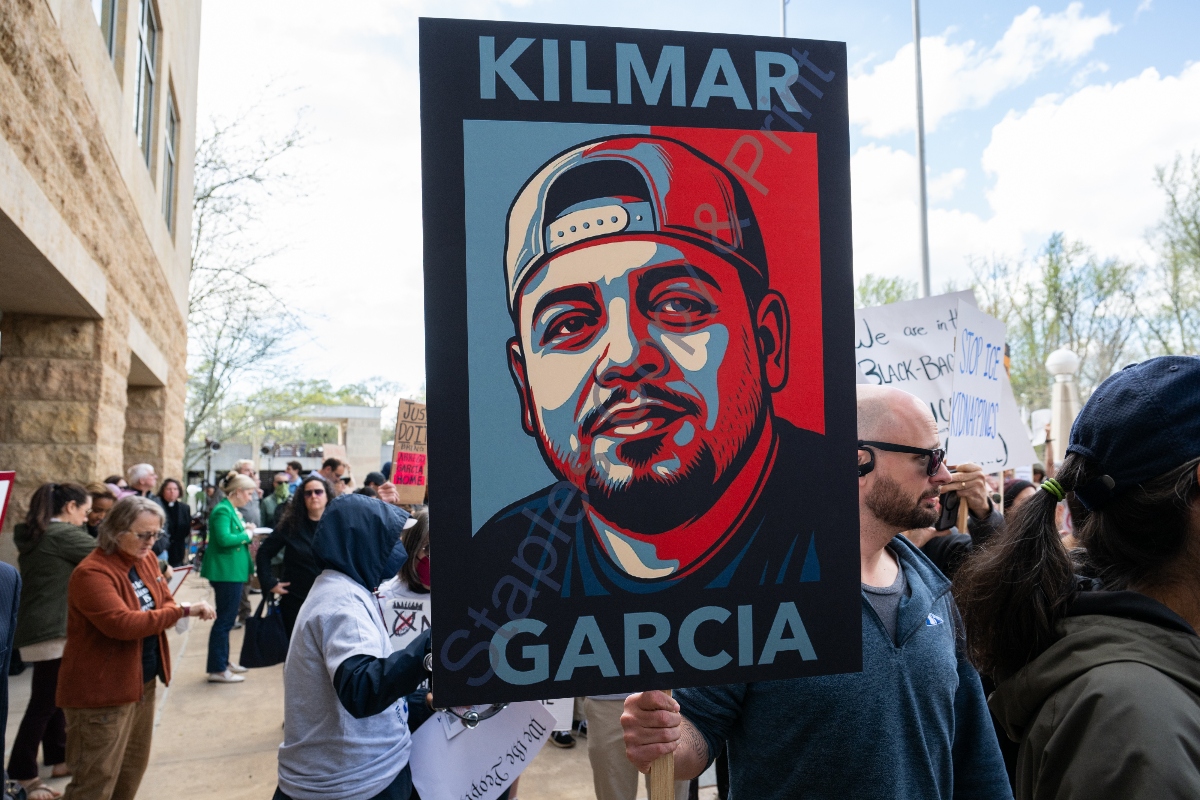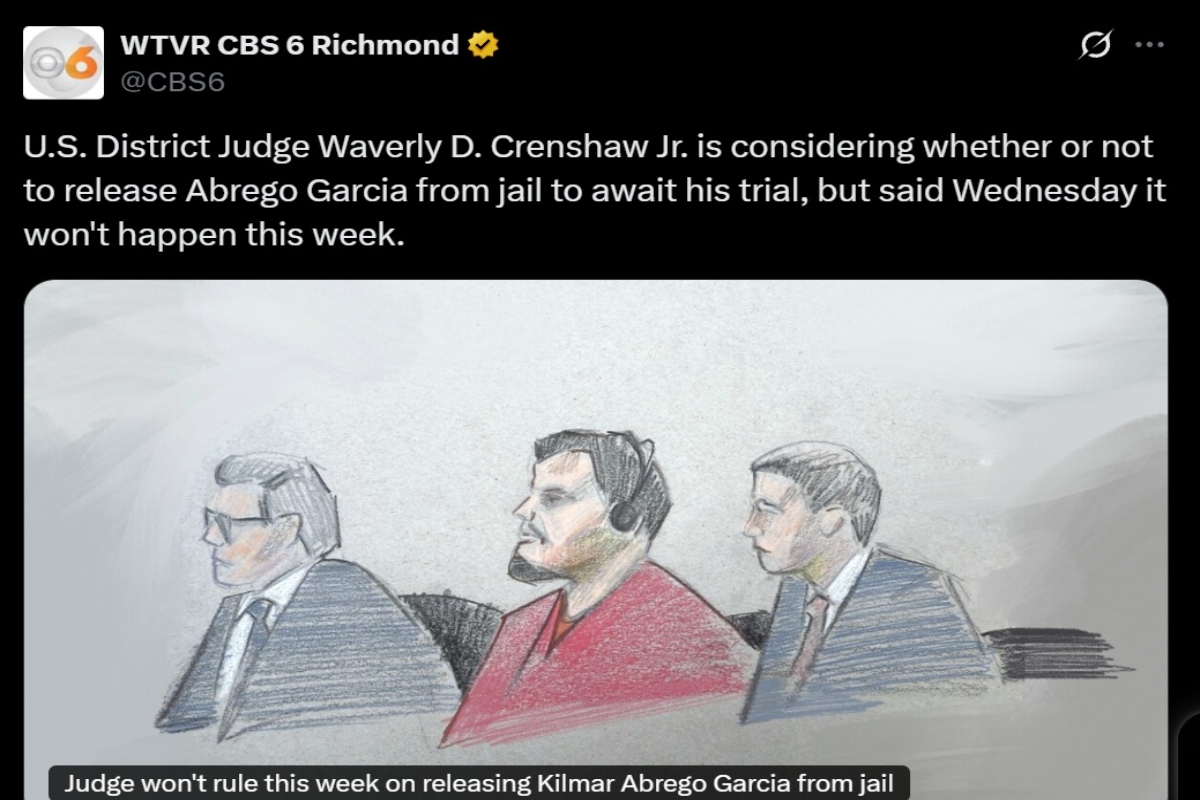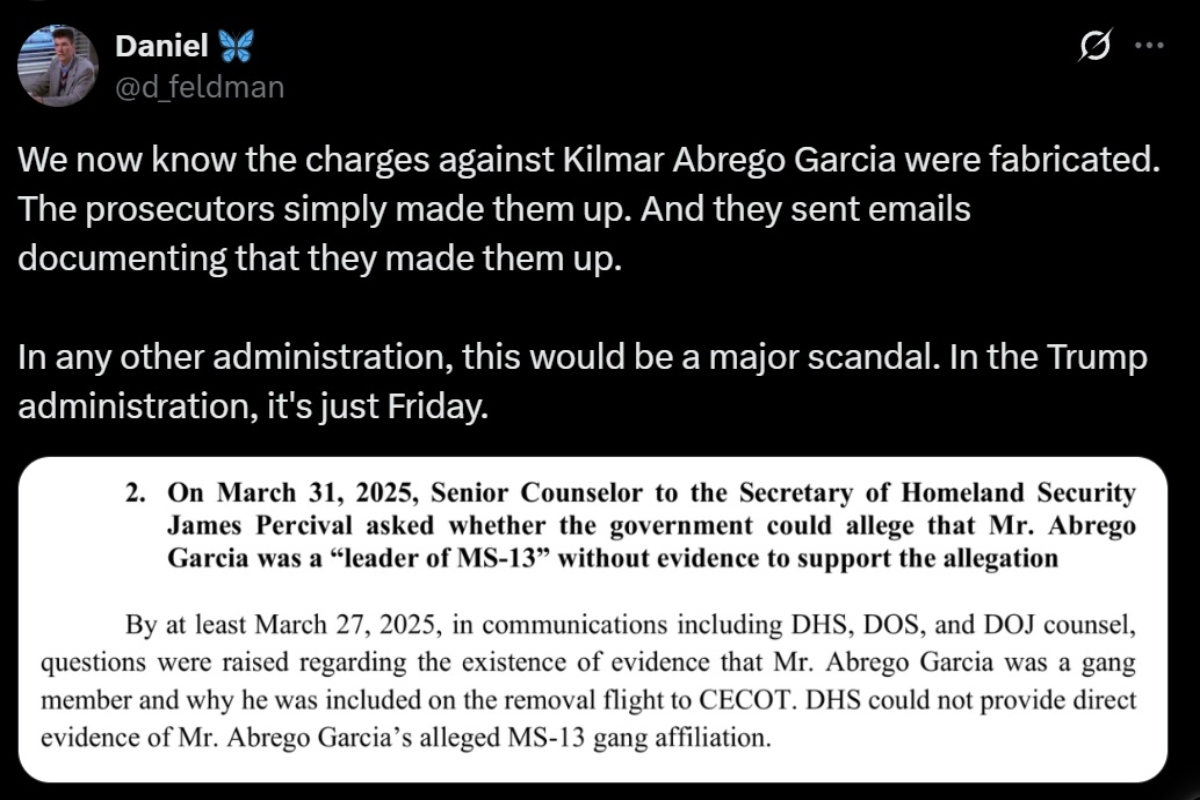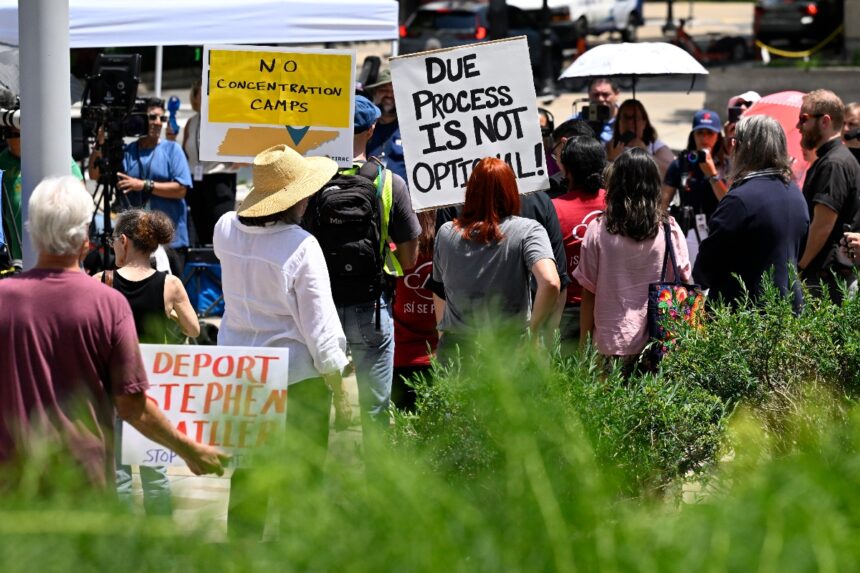Kilmar Ábrego García, a 30-year-old Salvadoran, arrived in the United States in 2012 as an unaccompanied minor, fleeing threats from the Barrio 18 gang. He had resided in Maryland for more than a decade. In 2019, an immigration judge determined he was deportable, but an asylum judge ordered his deportation stayed due to risk of persecution.
Despite this protection, he was deported in March 2025 for what the State Department recognized as an “administrative error”, sending him to El Salvador without the opportunity to appeal, along with more than 200 other migrants. He was interned in the maximum security prison CECOT, where he reported being beaten and tortured.
Return to the U.S. and new charges

After legal and media pressure, Kilmar Ábrego García was brought back to the U.S. in June 2025.
However, he was arrested on criminal charges for a 2022 case in Tennessee, where he allegedly transported undocumented persons.
The defense considers these charges to be retaliation by the government for publicly exposing his wrongful deportation.
He is currently facing charges of conspiracy to transport undocumented persons and illegal transportation for profit.
He pleaded not guilty and remains in custody in Nashville.
Trial scheduled for January 2026

Federal Judge Waverly D. Crenshaw Jr. set the trial date for January 27, 2026, following an extensive hearing in July.
However, the magistrate has not yet decided whether Kilmar Ábrego García will be able to go free while awaiting trial.
The prosecution argues that his release would allow ICE to immediately capture him for deportation.
Possibly to a third country such as Mexico or South Sudan, without access to a full immigration hearing.
Judge Crenshaw expressed doubts about the credibility of the prosecution witnesses, but has not yet authorized their release.
Meanwhile, a judge in Maryland, Paula Xinis, is evaluating whether Kilmar Ábrego García can be transferred to that state to guarantee him a “credible fear” hearing.
This is before ICE can remove him again.
Without this intervention, his deportation would be immediate if he were to be released from jail in Tennessee.
A case that symbolizes failures

Civil rights organizations such as CASA have taken her case as an example of migrant struggle.
During the hearing, activists held a press conference demanding protection for Kilmar Ábrego García.
This case stands as a symbol of resistance against the injustices of the immigration system
Lydia Walther-Rodríguez, líder de CASA
Kilmar Abrego Garcia’s future depends on pending court decisions in both Tennessee and Maryland.
If he is allowed to move, he may be able to initiate legal proceedings to avoid deportation.
If not, the U.S. immigration system could deport him again before his criminal trial, which would generate new criticism of immigration agencies.
For more information, visit QuéOnnda.com.























